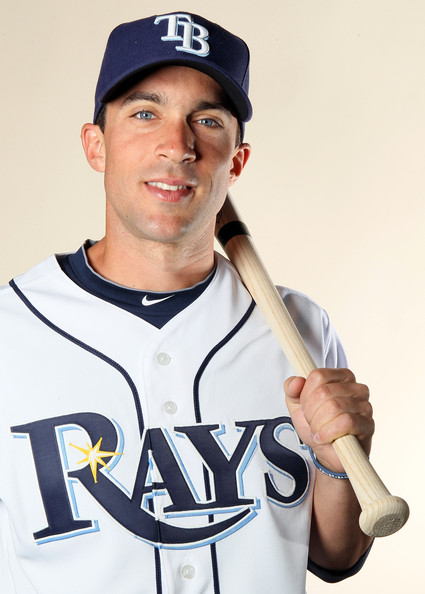As baseball season gets closer, I think back on puzzling display copy for a New Yorker article from three seasons ago about Tampa Bay’s then-spare outfielder Sam Fuld. There wasn’t anything wrong with the actual piece by Ben McGrath–Fuld is an interesting topic as a brainy last guy on the bench who’s overcome diabetes–but the headline was destined to be very wrong the second it was published. It read “Super Sam: Early Success for a Late Bloomer.” Except there was little chance that the veteran, who enjoyed a great April, would overcome a poor hit tool, no power and a history of offensive deficiency to become a “late bloomer.”
Fuld was just a subpar player who had a hot first month of the season, most likely because a lot of batted balls that were usually caught were finding holes. It was a statistical outlier, apt to happen from time to time, and just as likely to be corrected as more at-bats piled up. He ended that season with a .673 OPS (very substandard) and will have a tough time making the major-league squad in Oakland this spring. (Again: In all fairness to McGrath, he suggested that Fuld was just a shooting star. It’s more the hed and dek that were misleading.)
If this kind of statistical outlier happens during the middle of a season, it’s hardly noticed. But when it happens at the beginning of one, headline writers have a tendency to create a narrative that isn’t true. A player has magically improved! It will occur this season with some other player who, like Fuld, is fungible with guys in the minors.
But baseball and lesser sports don’t have ownership of such misreadings. It can also be the case with serious things like cancer clusters. We always want to investigate health crises that might have an unnatural origin, but we must remember that sometimes it’s just the numbers, merely an outlier.
From Amy Chozick’s New York Times Magazine interview with mathematician David J. Hand:
“Amy Chozick:
You also write that geographical clusters of people with diseases might not necessarily be a result of environmental issues.
David J. Hand:
It could just be a coincidence. Well, they could be due to some sort of pollution or infectious disease or something like that, but you can expect clusters to occur just by chance as well. So it’s an interesting statistical problem to tease these things out. Is this a genuine cluster in the sense that there’s a cause behind it? Or is it a chance cluster?
Amy Chozick:
So we shouldn’t dismiss those coincidences?
David J. Hand:
No, but if you do see such a cluster, then you should work out the chance that you would see such a cluster purely randomly, purely by chance, and if it’s very low odds, then you should investigate it carefully.”

